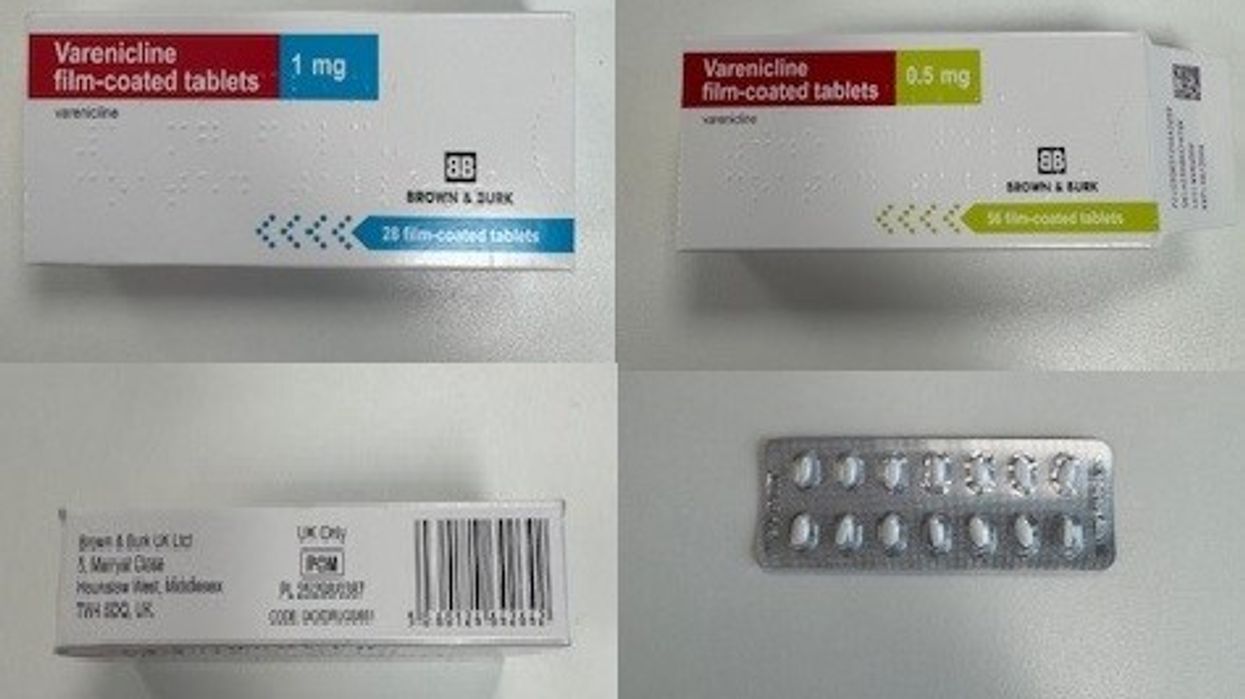It is estimated that Varenicline could prevent up to 9,500 smoking-related deaths over the next five years
Generic pharmaceutical company Brown & Burk has announced that it is “the first and the only company” to launch the new anti-smoking pill ‘Varenicline’ in the UK.
Available through NHS stop smoking services, the daily pill has been shown to be as effective as vapes and more successful than nicotine replacement gum or patches in helping smokers quit.
When combined with behavioural support, such as counselling, Varenicline was found to help one in four smokers quit for at least six months.
The company told Pharmacy Business that its Varenicline 1mg and 0.5mg tablets are being distributed by Teva UK, branded with Brown & Burk's livery.
Health secretary Wes Streeting recently highlighted the potential benefits of the pill, stating that its rollout could “save the NHS millions of pounds, save appointments to help other patients be seen faster, and save lives.”
A study by University College London suggested that Varenicline use could help over 85,000 people try to quit smoking each year, potentially preventing up to 9,500 smoking-related deaths over the next five years.
Varenicline is the generic version of Champix, which was withdrawn by Pfizer due to Nitrosinamine issues in 2021.
The new generic version has been approved as safe by the Medicines and Healthcare products Regulatory Agency (MHRA).
The pill works by reducing nicotine cravings, blocking its effect on the brain, and alleviating withdrawal symptoms such as irritability and difficulty sleeping.
In addition, the National Institute for Health and Care Excellence (NICE) has proposed adding Cytisine, also known as cytisinicline, as a treatment option for smoking cessation.
Recent evidence shows that people using Cytisine are 30 per cent more likely to remain smoke-free for six months or longer compared to those on a placebo or no medication.
Cytisine was approved by the MHRA in 2019 but became available in the UK only since January 2024.













